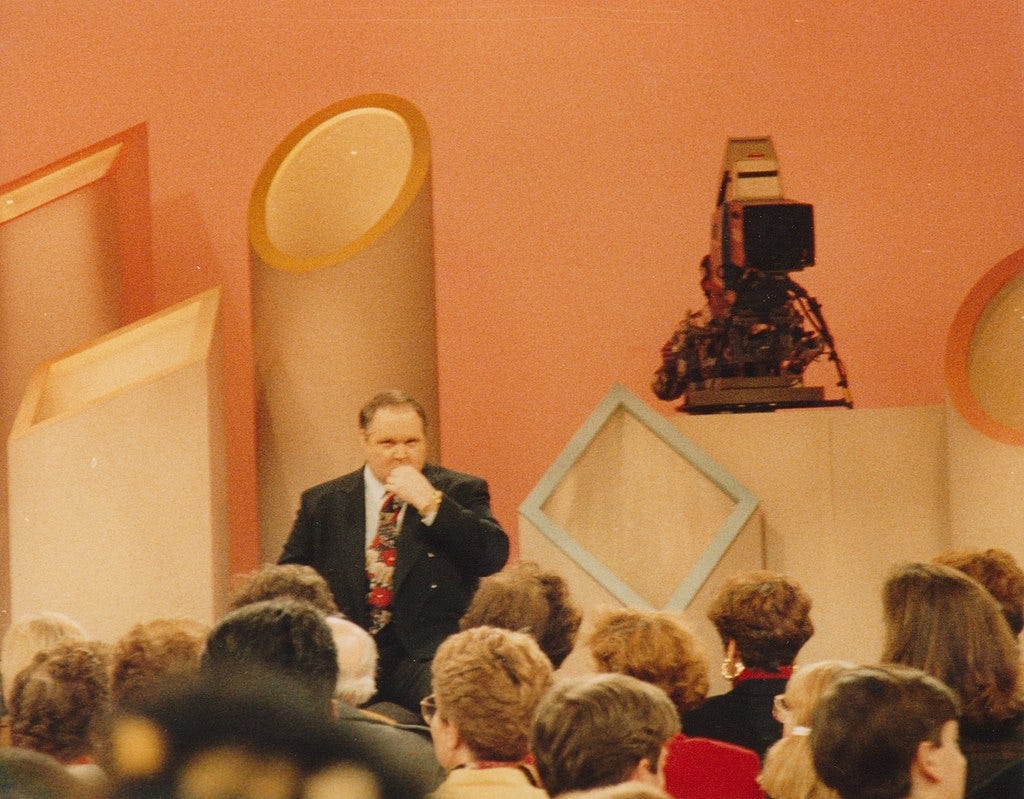Rush Limbaugh: Thought Leader
I remember really enjoying listening to Rush Limbaugh on my AM-only car radio while barreling down I-24 to get to philosophy class. He made me feel strong whenever I felt belittled by history, other people's thoughtfulness, & other forms of available data. He helped me believe my anxiety when confronted by the fact of other people was about them, not me. When I was tired of feeling outsmarted, he helped me feel smart again, like an espresso-shot of perceived righteousness.
I remember David Letterman concluding a show by announcing that Rush Limbaugh was going to be his guest the next evening. His studio audience erupted with cheers and boos, and Dave looked flustered and made a joke about how unexpected that was.
This was exciting. Here was a new thing among us. An emerging celebrity who didn't fit available categories. Rush was entering the mainstream. For a young man like me, this was sign that perhaps my own perceived quirkiness would also find a home. I’d had the same feeling watching Elvis Costello and Andy Kaufman. From here, Rush eventually got his own television show and....this was the beginning of the end (for me).
I'd felt energized by the sound of his voice, his language, his quick-wittedness, & the way he made short-work of anyone who opposed him. But having a face to look at…actually watching him do his thing—the derision, the mockery, the contempt, the bullying—made me ashamed to be associated with him. It no longer worked.
He had, however, taught me that I own the White House, that I'm responsible for what my taxes pay for (drone strikes, golf trips, Congressional Medals of Honor) and all that my government does with my presumed consent. In America, what the government undertakes with my presumed consent is, in a deep sense, on me. Hortense Spillers and Howard Zinn would also show me this, but Rush came first. He also turned me on to Snapple.
I believe I could name seventy-five friends and family who have given more of their lives to Rush Limbaugh’s words than they’ve given to their spawn, their spouses, or their parents. In this sense, he was among the most powerful worship leaders in American history. Media pundits, like Letterman then and now, seem to remain at a loss for words in describing what his witness means even though he was, for three decades, the de facto head of the Republican party.
The difficulty of fully acknowledging this fact publicly in a reaction-driven media economy which likes to keep religion, politics, and entertainment in separate containers disincentivizes famous talkers from registering, let alone analyzing, what he's cultivated among us. It’s hard to see or say what you’re handsomely compensated to avoid seeing and saying. But maybe his death will mark a time to think his influence & related matters through. I do a little bit of that here.
May Rush Limbaugh know joy and the root of joy and be delivered from suffering and the root of suffering.

